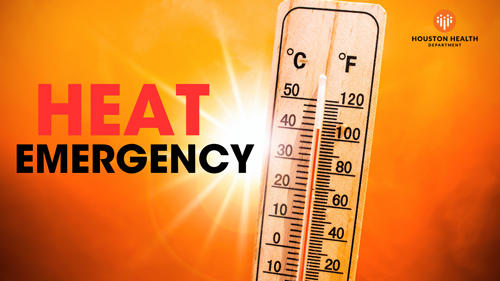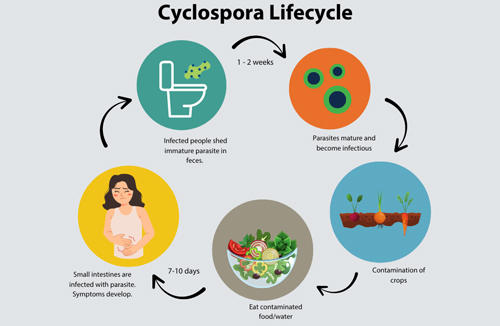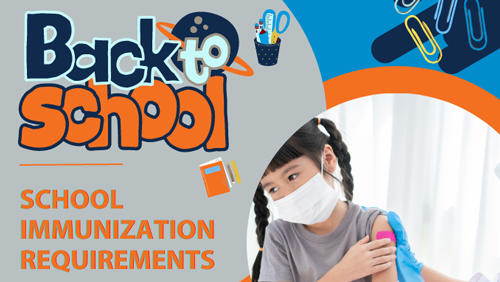Page last reviewed: August 18, 2023
Houston HealthScope - August 4, 2023

City of Houston extends heat emergency plan
 The City of Houston will extend its Public Health Heat Emergency Plan through Sunday, August 6, and will open some facilities to serve as cooling centers to provide a resource for people to take refuge from extreme heat.
The City of Houston will extend its Public Health Heat Emergency Plan through Sunday, August 6, and will open some facilities to serve as cooling centers to provide a resource for people to take refuge from extreme heat.
Houston libraries and multi-service centers will function as cooling centers during normal business hours on weekdays and Saturdays. The Central Library downtown is unavailable as a cooling center. Community centers operated by Houston Parks and Recreation Department will open to the public after the conclusion of daily programming for enrolled participants.
Anyone without air-conditioning can seek shelter at any of the following city buildings designated as cooling centers during the heat emergency. The following locations will open from 3:00 p.m. to 7:00 p.m. on Sunday, August 6:
- Acres Homes Multi-Service Center, 6719 W. Montgomery Rd.
- Sunnyside Multi-Service Center, 4410 Reed Rd.
- Moody Community Center, 3725 Fulton St.
The YMCA of Greater Houston will also provide a resource for people needing to seek relief.
The National Weather Service predicts heat index values will reach as high as 112 through Sunday.
The City of Houston activates its Public Health Heat Emergency Plan when the Houston area begins to experience excessive heat. It activates the plan when a heat advisory or an excessive heat warning is expected to last two or more consecutive days.
People without adequate transportation to a designated cooling center can call 3-1-1 to request a free ride. Transportation is only to and from the cooling centers; transportation to other locations is unavailable.
The Houston Health Department recommends the precautions below to avoid heat-related illness such as heat exhaustion or heat stroke.
- Increase water consumption. Drink lots of liquids even before getting thirsty, but avoid beverages with caffeine, alcohol, or large amounts of sugar because these can result in the loss of body fluid.
- Conduct outdoor work or exercise in the early morning or evening when temperatures are not as high. Outdoor workers should drink plenty of water or electrolyte replacement beverages and take frequent breaks in the shade or in an air-conditioned facility. People unaccustomed to working or exercising in a hot environment need to start slowly and gradually increase heat exposure over several weeks.
- Wear light-colored, loose-fitting clothing that permits the evaporation of perspiration.
- Do not leave infants, children, senior citizens, or pets unattended in a parked vehicle, even if the windows are cracked open. Check to make sure everyone is out of the car and don’t overlook children who may have fallen asleep.
- Wear a wide-brimmed hat to help prevent sunburn as well as heat-related illness. Apply sunscreen, which protects from the sun’s harmful rays and reduces the risk of sunburn.
- Seek accommodations in air-conditioned facilities during the heat of the day if the house is not air-conditioned: a relative’s home, multi-service centers, malls, movie theaters, libraries, etc.
- Take frequent cool baths or showers if your home is not air-conditioned.
Symptoms of heat exhaustion include weakness, dizziness, excessive sweating, cool or moist skin, nausea or vomiting, muscle cramps, and a fast and weak pulse. People experiencing these symptoms should lower their body temperature by getting to a cooler place, drinking water, taking a cool shower or bath and resting.
A throbbing headache, red, hot, and dry skin (no longer sweating), extremely high body temperature (above 103°), nausea or vomiting, confusion, loss of consciousness and a rapid, strong pulse are signs of heat stroke. If these symptoms occur, call 9-1-1 immediately and try to lower the person’s body temperature until help arrives.
People may seek air-conditioning in city multi-service centers, libraries and recreation centers, even when the Public Health Heat Emergency Plan is not activated. For more information or to find the nearest cooling center location or an air-conditioned city facility, people can call 3-1-1.
Cyclospora is on the rise and HHD is prepared!
 Cyclosporiasis, previously associated with travel outside of the U.S. or consumption of contaminated imported foods, is on the rise throughout the United States in recent months.
Cyclosporiasis, previously associated with travel outside of the U.S. or consumption of contaminated imported foods, is on the rise throughout the United States in recent months.
Houston is feeling the impact of the non-life-threatening illness which is caused by an intestinal parasite. Recent reports of Cyclospora infections in Harris and Fort Bend County have led health officials to issue warnings and advise to take extra precautions as more and more people become infected by contaminated food or water.
The Houston Health Department began preparing for such an outbreak at their April 2023 Educational Session for Houston-area Epidemiologists. The speakers included HHD’s supervisor Dr. Steve Long, epidemiologist Mr. Okey Akwari, surveillance investigator Ms. Melissa Plantenga, microbiologist Ms. Flor Hudson and HHD’s chief sanitarian Mr. Abeid Fells. The training was followed by the tabletop exercise facilitated by Ms. Bri Patton from the Colorado Food Safety Center of Excellence.
“To enhance foodborne outbreak response in the 6/5S region a Foodborne Illness Tabletop Exercise based on Cyclosporiasis was held by the HHD – BOE in cooperation with the Colorado Food Safety Center of Excellence on Monday, April 10, 2023, at the 3rd Ward Multi-Service Center (MSC). The morning session included training on Cyclosporiasis from multiple disciplines. A candid conversation on Cyclosporiasis outbreak among diverse levels of staff enabled an efficient and excellent environment for the exchange of ideas, protocols, and practices toward productive and realistic strategies for the tabletop exercise. All attendees were presented with a Certificate of Achievement that certified the completion of the exercise,” recounted Dr. Varsha Vikil, HHD epidemiologist.
View the HHD Educational Session slideshow and learn more about HHD’s steps to curbing Cyclospora’s spread in the communities.
Back to School is upon us! Are your child's immunizations up to date?
 When it comes to back-to-school prep, you have the agenda for clothes shopping and a list of required school supplies ready to make your child(ren)’s first day at school seamless.
When it comes to back-to-school prep, you have the agenda for clothes shopping and a list of required school supplies ready to make your child(ren)’s first day at school seamless.
What about your health checklist?
There are necessary check-ups your child needs before heading back. Vaccines, check-ups, dental exams. They’re appointments we should all be making regularly but especially before school.
Research shows strong correlations between healthy students and academic achievements. Healthy students are better learners. Vaccinations protect students from diseases and keep them healthy. It all ties together.
At the Houston Health Department’s health centers, parents can take their children for their back-to-school immunizations as well as other health and social well-being needs including dental.
Be the reason your student starts off the school year with an A in Health. Get them immunized with the necessary immunizations today.
The Centers for Disease Control and Prevention (CDC) has a quick chart to reference for what immunizations are required based on the age of the child: 0-6 years and 7-18 years.
Houston Health Department in the News
This week, the Houston Health Department's Office of Chronic Disease, Health Education and Wellness joined the American Heart Association to discuss HHD's Community Self-Monitoring Blood Pressure Initiative and the steps being taken to increase opportunities for chronic disease prevention in Houston's most vulnerable communities.
